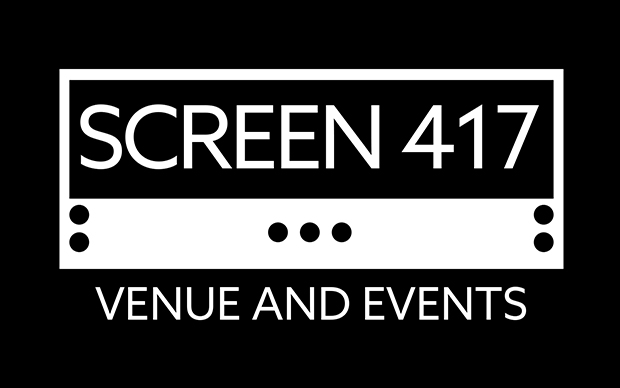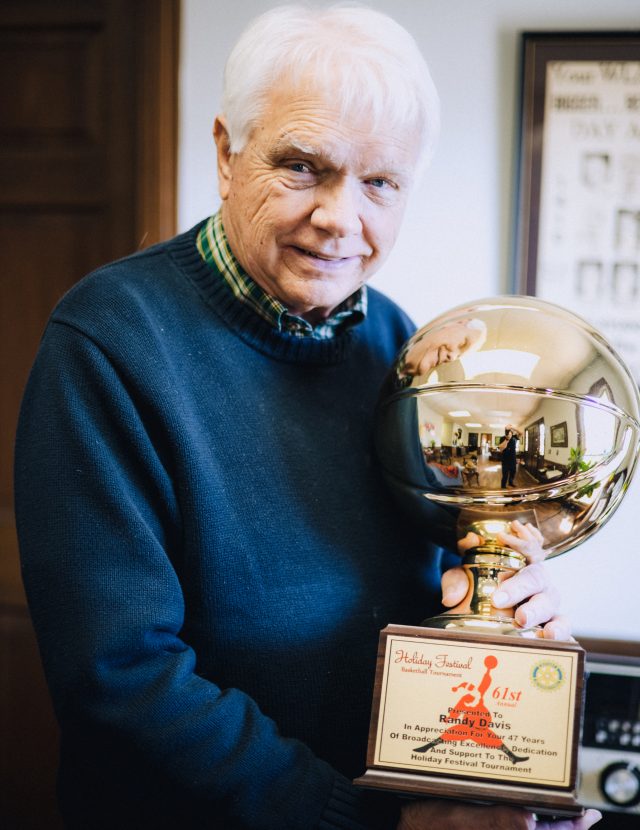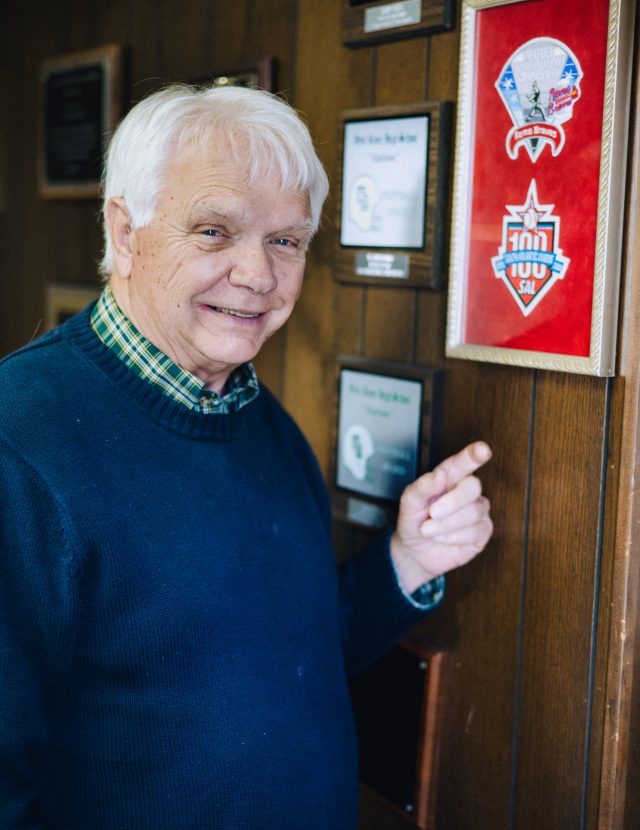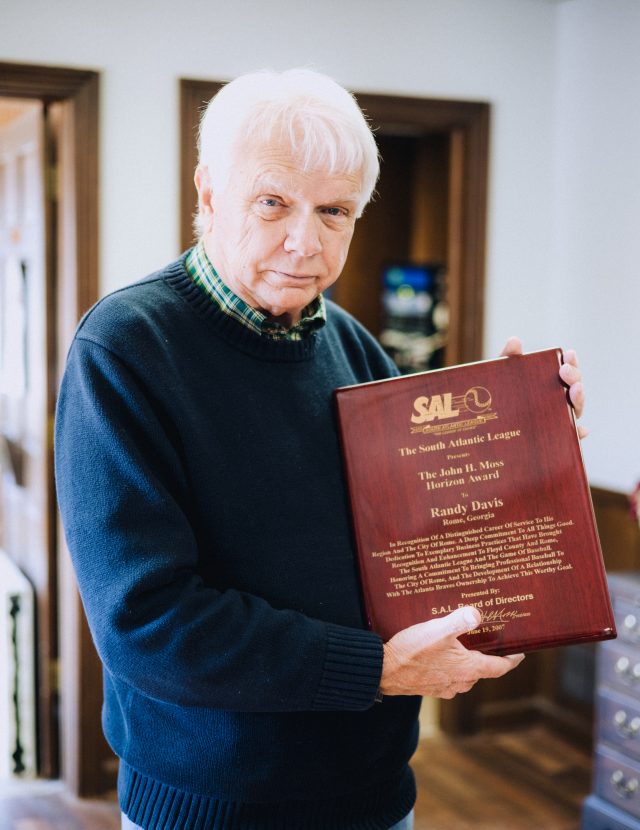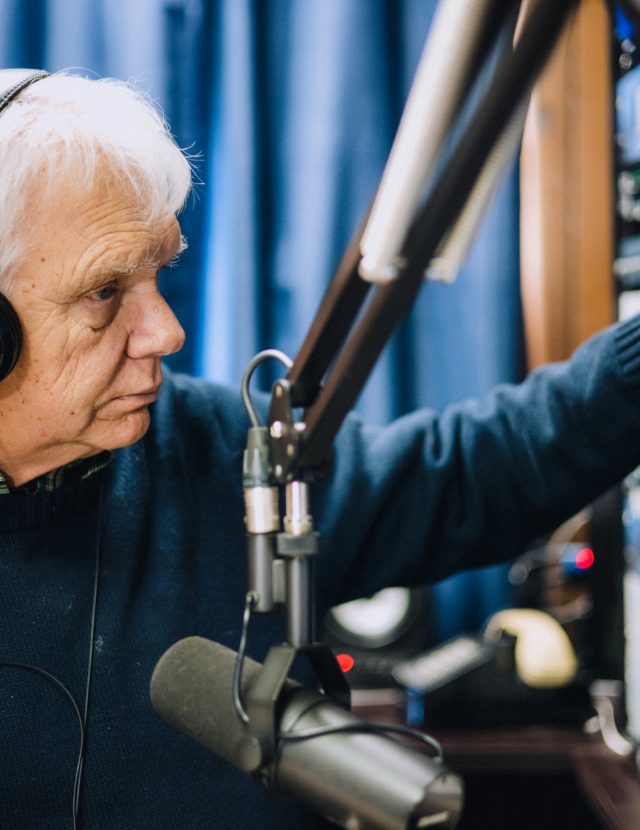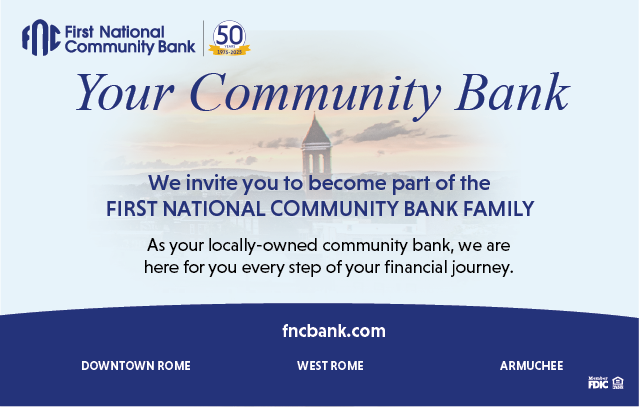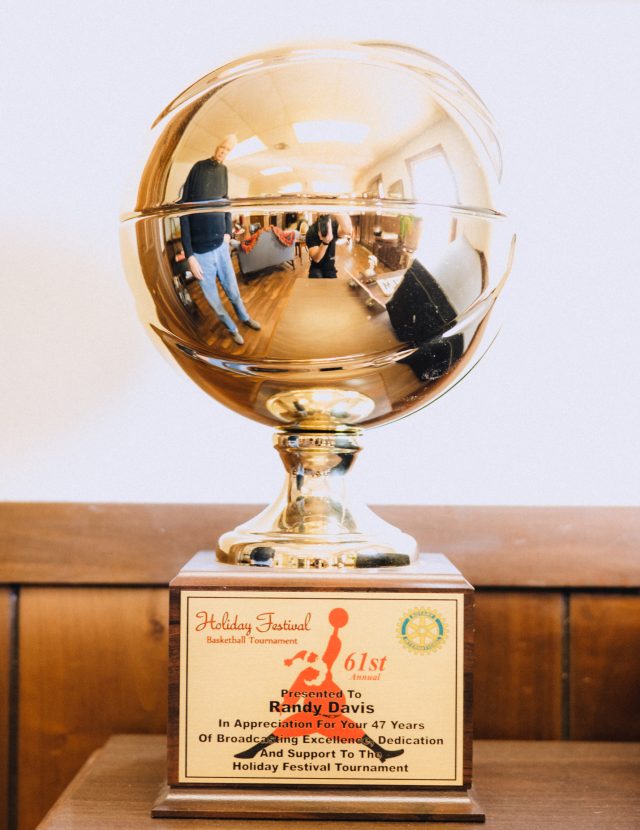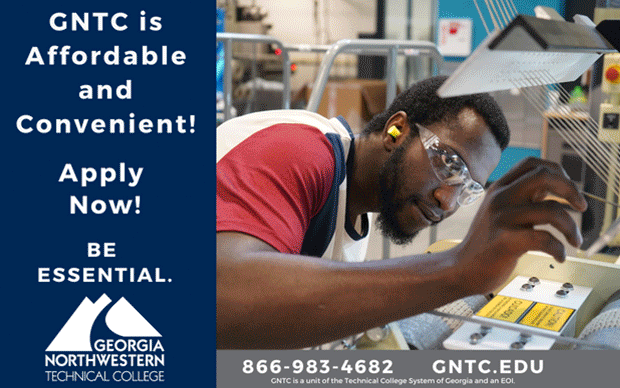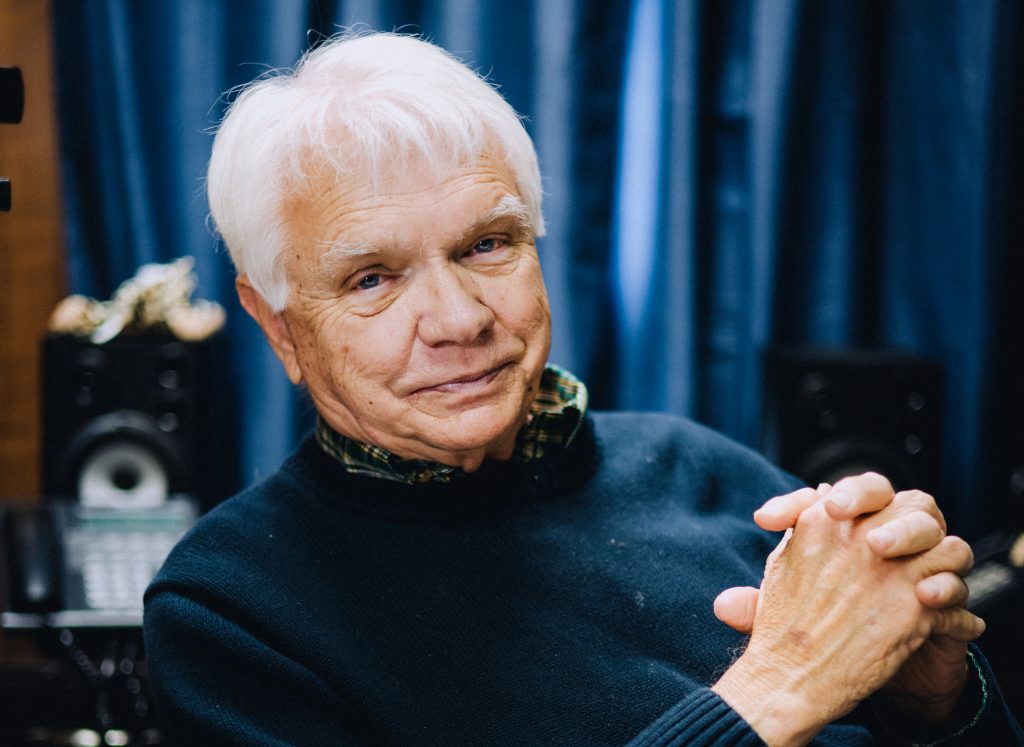
Photos Andy Calvert
“He’s just a good ole guy who loves Rome, Georgia.”
Randy “Mr. Baseball” Davis is a lifelong resident of the Rome, Georgia, area. Even if you’ve never seen his face, you’ve likely heard his voice at some point in your life. Davis has owned three radio stations in the northwest Georgia area, one in Rome and two in Summerville (including 95.7 The Ridge, which he sold in 2019), and he was the self-proclaimed “biggest cheerleader” when Rome was trying to convince its citizens to pay for a minor league baseball stadium and recruit a team to play in it.
Even to this day, Davis hosts a daily morning talk show from 9–10am Monday through Friday. The show, Later This Morning, airs on WLAQ and features local guests such as Monica Sheppard and Severo Avila, among others. He also hosts a high school football scoreboard show on Friday nights in the fall.
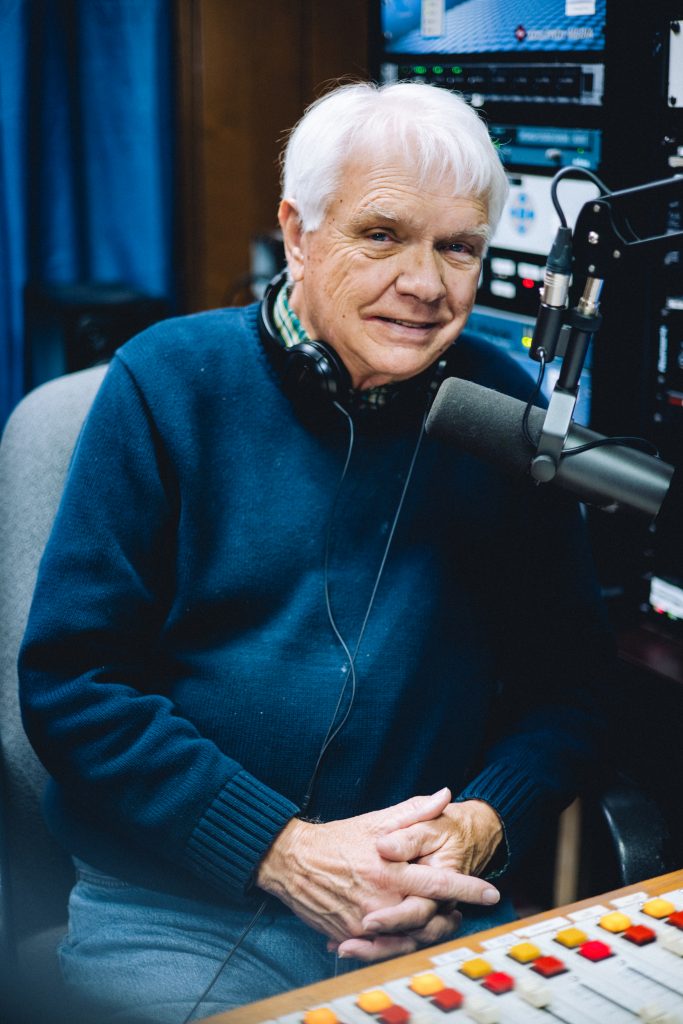
Davis’s start in radio came as a youth working for Tom Lloyd. On April 1, 1987, after 17 years, Davis purchased the station from Lloyd and has owned it ever since. “I’ve literally worked there through high school and all of my life,” Davis says proudly. “I just enjoy radio, period. The fact that I own it was a matter of buying it or getting a job. I so happened to like the job, so I bought the station. I Still do [like the job],” he says with laughter. In his radio journey, Davis was a disk jockey for a period of time, but he is most famous for being the Voice of Sports in Rome.
In 1997, Davis was inducted into the Rome-Floyd Sports Hall of Fame. “I learned from one of the best, Lee Mowry, who is also in the Sports Hall of Fame,” Davis says.
Davis has broadcast hundreds of high school and college football, basketball, and baseball games. “There were some great teams and great moments; some of my fondest come from the West Rome High School Dynasty winning the state championship 4 consecutive years in football in the early to mid-80s and East Rome High School winning back to back basketball state championships in the late 80’s.”
Another of his favorite sportscasting moments, broadcasting the Rome Braves winning the South Atlantic League Championship in their inaugural season, takes us to the origins of another one of the life accomplishments of Randy Davis: minor league baseball in Rome, Georgia.
“I always thought Rome was the perfect spot for minor league baseball,” Davis says. “I mean, it was all laid out. Plus, we’ve always had baseball in Rome. I was in Washington D.C. on a trip and found brochures in a sporting goods store saying, ‘let’s bring baseball back to Washington.’ In the brochure, they were selling season tickets for a team that didn’t exist (yet). I found that to be an interesting concept, so when I got back home, I went to the Chamber of Commerce and pitched to them how Rome would be a great place for minor league baseball.
They agreed and got behind me and the project, and we decided that ideal they were using in Washington would be a great model to follow. We could sell season tickets for a team we didn’t have yet. Then we would go to a league and pitch our story to them. After research, the South Atlantic League was a fit for us as far as size and cities.
We told people that if they bought the tickets and we didn’t get a team, we’d hold their money in escrow, drawing interest, and if we didn’t get the team in a certain time frame, we’d give it back, which we ended up doing.
We had teams that were interested in relocating to Rome, but we couldn’t develop a plan to get a stadium. We couldn’t conjure up a financial mechanism. We finally figured out that it was gonna take a lot of money to get a stadium. The project then kind of faded out for a little while.
A group of us got together and decided the only viable way to get a stadium was to go to the public and have a SPLOST vote for a stadium. The proposition failed miserably. The St. Louis Cardinals were the team that was coming here because of their interest in the Budweiser plant being so close. We also had a shot at the Braves then (10 years before we got them), but that was also the same stadium issue. Later, a proposition for a vote went through, and in that first SPLOST vote for a stadium, in which we had asked for a million and a half dollars, it failed.
We decided we’d try again. And the Atlanta Braves got behind us, with public promotions and such. The community also got behind the project. So, then came the second vote, 10 years later. We made our minds up that this time, since we were gonna ask the public to pay for a stadium, that we’d ask for a good one. And if we were gonna fail, we were going down swinging, so we asked for 14 million dollars for a sure enough first-class stadium,” Davis explains.
The SPLOST passed by 143 votes.
“My role in all of that,” Davis says, “I was the biggest cheerleader, the Pied Piper if you will. I got a lot of people behind the project. There were tons of people who worked on it to make it happen.
Some of the people that worked really hard were City Commissioner Wendy Davis, she was a strategist and figured out every way for us to talk to voters. Then Bill Byington, he worked with me from Day 1. We went to ballparks. We went to national meetings in Nashville, Tennessee, and this dates back to the years the SPLOST failed. None of us ever turned our back on the project and it just kept coming up.”
The Macon Braves moved to Rome after having been unsuccessful in securing a new stadium in the South Georgia city. There was fear that their new home wouldn’t be built fast enough. Early in the construction of Rome’s State Mutual Stadium, it rained for 43 consecutive days, delaying the project. “People thought it wouldn’t be built in time,” Davis recalls. “But it was, and it was beautiful and still is.”
“The Rome Braves being here provides the city an avenue for national publicity. To be the home of one of 143 minor league baseball teams in the country at that time,” Davis says. “Having them also helps the quality of life in Rome because that’s an industrial developer. If you have a good quality of life, industries want to come to your town because it gives their employees something to do. Then look at how it employs many people, including senior citizens and young people. It was very difficult, but it came to pass, and we are better for it.”
Davis’s footprint is also set deeply into another of the city’s long-standing traditions: The Rome News-Tribune Christmas Tournament. He broadcast the tournament for 43 years and upon retirement, became the first and only individual to receive a gold ball from the tournament committee. “Now that one got beside me,” Davis said.
If you see Mr. Baseball, the Voice of Rome, Georgia, out in the community, just know he loves it here, and that he’s helped make it a place to love.

